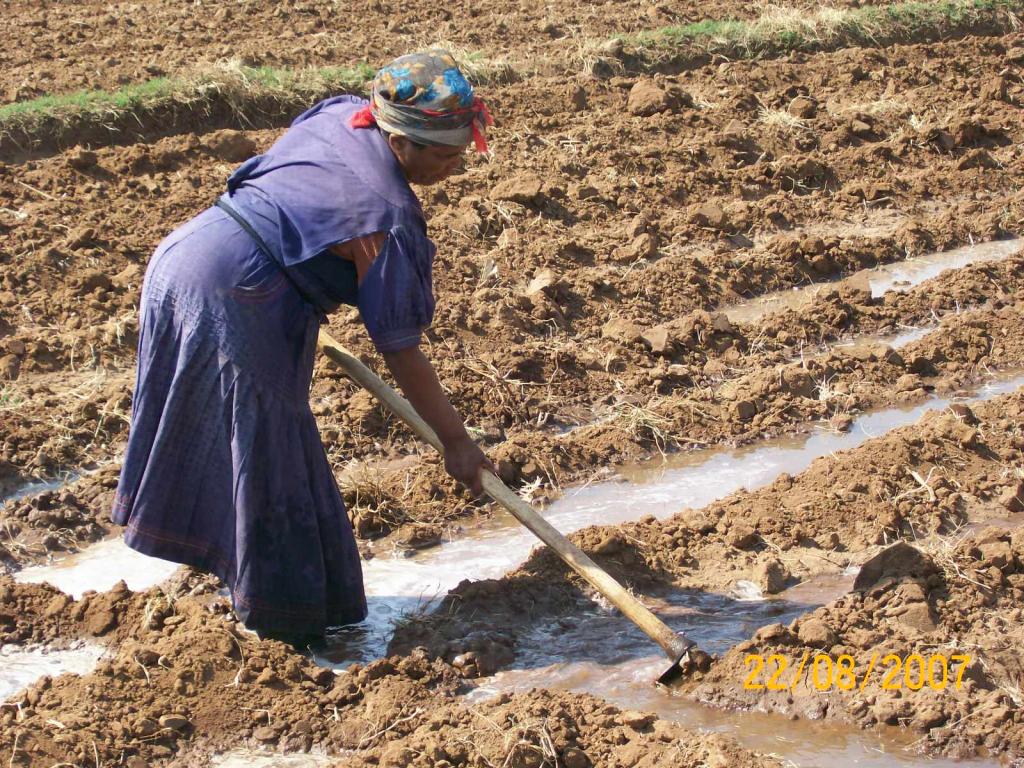How one region is planning ahead to help farmers cope with climate change

In South Africa’s Western Cape, agriculture plays an important role in the economy, job creation and socioeconomic development. But the sector is particularly vulnerable to a changing climate.
There have thus been calls for urgent action to guide and support the agricultural sector to adapt to the unavoidable impact of climate change. And to reduce its greenhouse gas emissions.
Relevant government departments recognised that a strategic and co-ordinated approach was needed to develop long-term resilience to climate change. This could be done through climate-smart agriculture and by placing the sector on a clear pathway towards a green economy.
To do this, the University of Cape Town and two provincial government departments – Agriculture, and Environmental Affairs and Development Planning – collaborated on the Smart Agriculture for Climate Resilience programme. It launched in August 2014.
First of its kind
This is the first provincial climate change policy for agriculture in South Africa. The project specifically focuses on food security and promotes climate-smart agriculture.
It also aligns closely with the current five-year provincial strategic plan and the Department of Agriculture’s strategic goals. One of the key goals is to optimise the sustainable use of water and land resources to increase climate-smart agricultural production.
The programme is premised on collaborative planning and action within and between the public and private sectors. This includes national, provincial and local government. It also includes organised agriculture and industry associations, farmers, agri-processors and agri-business, labour and civil society, and research and academic institutions.
The project has thus far achieved an understanding of expected climate risks and impacts and vulnerabilities in agriculture. It has established the important linkages between resource sectors, water, energy and agricultural production. It also showed that vulnerability is high across the sector.
One of the project’s key successes was a framework to battle the harsh impact of climate change.
Areas that have a much milder climate and where climate change will not be as dramatic have also been identified. These may become the future centres of food production.
Capacity to adapt
There is existing capacity in the Western Cape’s agricultural sector to adapt to the added stresses of climate change. Local companies are already providing energy-saving low-carbon solutions to farms and agri-businesses.
Leading wine estates have installed energy-saving measures and systems for renewable energy generation. The FruitLook project is using satellite images to help fruit farmers increase their irrigation efficiency. These solutions must be harnessed to stimulate innovation and technology transfer for climate change adaptation and mitigation.
The resilience project hopes to ensure that the existing response capacity is developed to its greatest potential. It promotes responses that are practical, relevant and locally implementable over various time scales and budgets.
The project has taken a strong spatial approach, creating 23 spatial zones. This is because the risks and impacts of climate change will differ widely across the province. It is all dependent on climate, soils, vegetation and farming systems.
Western marginal grain zones such as the “Rooi Karoo - Aurora” are expected to shift to livestock production. This zone will become hotter and drier. Some zones could benefit from mild warming and wetting, for example the southern “GrootBrak-Plett” zone.
The project proposes a focus on four strategic areas with the aim to.
-
Promote a climate-resilient low-carbon production system that is productive, competitive, equitable and ecologically sustainable.
-
Strengthen effective climate disaster risk-reduction and management for agriculture.
-
Strengthen monitoring, data and knowledge management and sharing, and lead strategic research for climate change and agriculture.
-
Ensure good co-operative governance and joint planning for effective climate change response implementation for agriculture.
It is also important that climate change considerations be integrated into longer-term resource and economic planning.
Another round of stakeholder engagements will ensure that the plan is realistic and implementable. The project will be completed during March 2016.
Republished with kind permission from The Conversation Africa
Disclaimer: The views expressed here are solely those of the author in her private capacity and do not in any way represent the views of the ACDI, or any other entity affiliated with the ACDI.